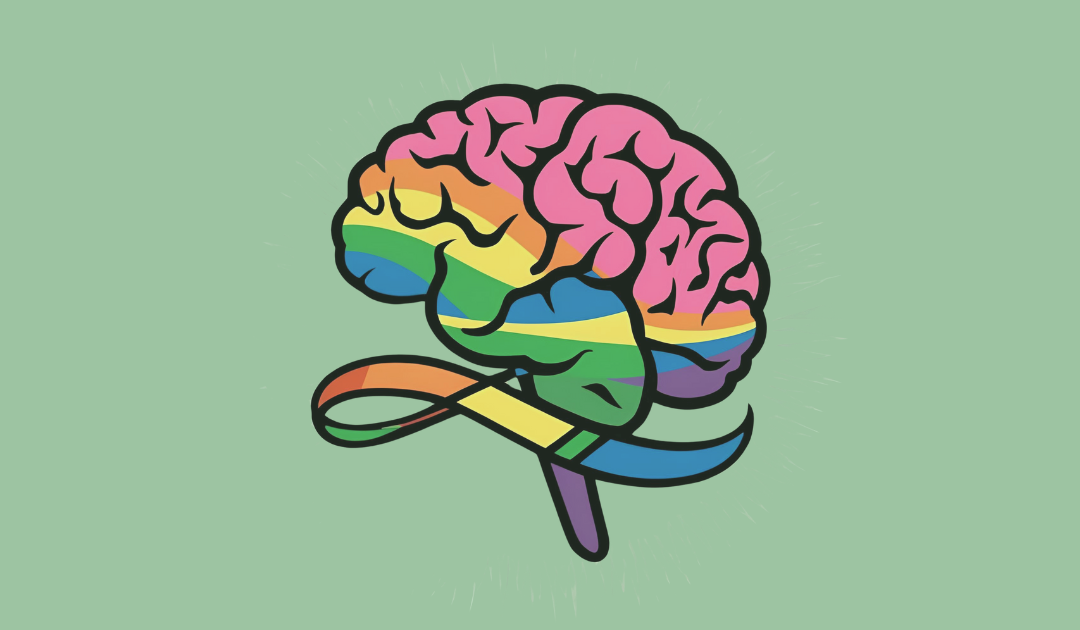LGBTQ+ Mental Health: Resources & Support
Explore the various mental health resources and support available for the LGBTQIA community to empower their mental well-being.
5 min read
KD Holmes, MS, LPC, EMDR Certified & Ashley Rush, MS, PLPC : Jun 23, 2023 6:29:33 PM

Obsessive-Compulsive Disorder (OCD) affects millions of people worldwide. It is characterized by intrusive, repetitive thoughts, images, or impulses (obsessions) that lead to compulsive behaviors or mental acts, aimed at reducing the distressing thoughts or preventing a feared outcome (compulsions).Statistics on OCD reveal that approximately 1-2% of the global population are OCD sufferers, translating to millions of individuals worldwide. In the United States alone, it is estimated that about 2.2 million adults are living with OCD. The onset of OCD typically occurs in late adolescence or early adulthood, although it can also begin in childhood. Research indicates that OCD is equally prevalent among men and women, and it can significantly impair daily functioning and quality of life. Despite its prevalence, many people with OCD do not seek treatment due to stigma, lack of awareness, or misconceptions about the disorder. However, with proper diagnosis and Exposure and Response Prevention (ERP) treatment, individuals with OCD can live a meaningful life.
Although OCD can be treated successfully with Exposure and Response Prevention, there are still many misconceptions surrounding its treatment process. We (Ashley and KD) will debunk some of the most common myths about OCD treatment and set the record straight.
OCD treatment is not about fighting or suppressing unwanted thoughts, emotions, or sensations. Instead, it involves learning to accept and tolerate these internal experiences without reacting to them or trying to make them go away. This approach is known as mindfulness-based cognitive-behavioral therapy (CBT) and is based on the premise that our thoughts and feelings are not always under our control, but our reactions to them are. By practicing mindfulness and acceptance, people with OCD can develop a new relationship with their internal experiences and reduce their anxiety and distress.
KD's thoughts: I call this process coexistence. It's like having a difficult relative moving into your home indefinitely where you work and live. You don't have to like your relative, but you do have to tolerate their presence. Mindfulness practices are similar; they are not always serene and pleasant. It's often like having a loud record playing in the background while you try to concentrate and work. However, we can't simply turn off the record. Coexistence is inevitable, but with time and practice, it becomes manageable. Acceptance is your best friend. But you don't have to dance to the music or collude with the family member; instead, you allow some distance or Defusion, as it's called in ACT.
It is a common misconception that OCD treatment aims to get rid of intrusive thoughts and anxiety altogether. In reality, the goal of treatment is to help people learn how to manage and cope with these experiences in a way that reduces their impact on their lives. This involves learning new skills, such as exposure and response prevention (ERP), which helps people gradually confront the situations or stimuli that trigger their obsessions and practice alternative, healthy responses. By doing so, people with OCD learn to face their fears and tolerate uncertainty without resorting to their compulsions, thus reducing anxiety and improving their overall quality of life.
Ashley's thoughts: Everyone, those with OCD and those without, experiences intrusive thoughts... it's normal! It's how we react to those thoughts that is important.
Many people with OCD feel compelled to engage in compulsive behaviors or mental acts because they believe they can prevent a negative outcome or avoid harm. However, this belief is often based on faulty reasoning and unrealistic assumptions. In OCD treatment, the focus is not on convincing the brain that the obsession is not dangerous or will not happen, but on helping the individual develop the confidence and skills to tolerate uncertainty and the discomfort that comes with it. This involves changing their relationship with their thoughts and fears and learning to live with uncertainty without resorting to compulsive behaviors. By doing so, people with OCD can break the cycle of fear and compulsion and regain control over their lives.
KD's thoughts: This process of learning to tolerate uncertainty takes time, but it works on even the most extreme OCD sufferers. Many individuals initially believe that it is impossible to change their deeply ingrained patterns of thought and behavior. However, I often challenge this belief by encouraging them to engage in the Exposure and Response Prevention (ERP) process. ERP is a structured and evidence-based approach that involves gradually exposing individuals to their fears and preventing the compulsive behaviors that typically follow. By doing this consistently and with dedication, significant improvements can be seen within 3-6 months. This timeframe may seem daunting, but the results are profound and life-changing. For those who remain skeptical, I recommend visiting the International OCD Foundation (IOCDF) website, where extensive research and numerous success stories highlight the effectiveness of ERP. The evidence is clear: with commitment and the right guidance, overcoming OCD is not just a possibility but a reality for many.
OCD treatment is not a quick fix, and the results are not always immediately apparent. It takes time, effort, and commitment to learn new skills and apply them in real-life situations. Furthermore, the goal of treatment is not just to reduce symptoms or anxiety, but to help people with OCD live a more fulfilling life and pursue their values and goals. This involves learning to accept and tolerate discomfort, taking risks, and facing challenges despite uncertainty and anxiety. While feeling better may be a side effect of successful treatment, the primary goal is to help people with OCD live a more meaningful and rewarding life.
Ashley's thoughts: Our goal as OCD therapists is to get you to live the life you want to life! Getting to that goal requires consistent practice of the skills learned in therapy, outside of the therapy room :)
OCD treatment is a challenging but intensely rewarding journey that requires patience, courage, and support. It is a path that demands a deep commitment and a willingness to face one's fears head-on. The process involves not only the individual with OCD but also their loved ones and mental health professionals who provide guidance and encouragement along the way. By understanding and dispelling common myths about OCD treatment, people with OCD can be better informed and motivated to seek effective help. This knowledge empowers them to take the first step towards recovery, knowing that they are not alone and that effective treatments are available.
IT IS ESSENTIAL TO REMEMBER THAT OCD TREATMENT IS NOT ABOUT FIGHTING OR GETTING RID OF UNWANTED THOUGHTS AND SENSATIONS, BUT ABOUT LEARNING TO LIVE WITH THEM IN A WAY THAT REDUCES THEIR IMPACT ON OUR LIVES.
This means embracing a mindset of acceptance, where the focus shifts from trying to eliminate distressing thoughts to developing ERP ways of responding to them. It involves recognizing that these thoughts and sensations are a part of the human experience and that they do not define one's worth or capabilities. Through consistent practice and the application of Exposure and Response Prevention, individuals can learn to coexist with their OCD symptoms without allowing them to dominate their lives.
With the right specialized treatment and support from a trained therapist (like Ashley, KD, or Isla), people with OCD can live a fulfilling life. This support system is crucial, as it provides the necessary tools and strategies to navigate the complexities of OCD. Therapists like Ashley, KD, and Isla offer a compassionate and structured approach, helping individuals to build confidence and resilience. Over time, with dedication and perseverance, people with OCD can achieve significant improvements in their mental health and overall well-being, leading to a life that is not only manageable but also rich with purpose and joy.

Explore the various mental health resources and support available for the LGBTQIA community to empower their mental well-being.

At KDH Counseling, our therapists specialize in a number of different areas, one of which being their ability to provide neurodiversity-affirming care

There’s a quiet knowing some people carry—a long-held sense that they’ve always moved through the world a little differently. Not wrongly, just… not...